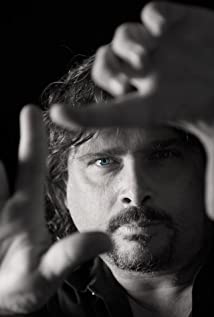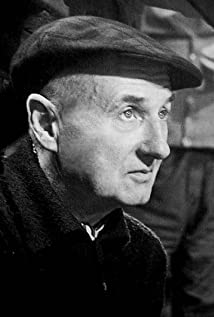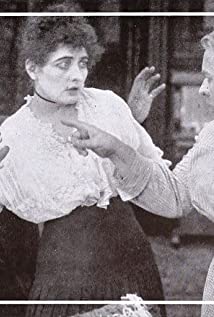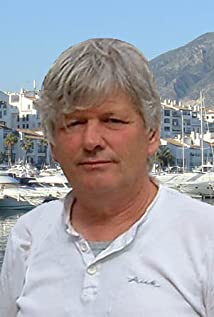Victor Sjöström was born on September 20, 1879 in Silbodal, Värmlands län, Sweden, Sweden, is Director, Actor, Writer. Victor Sjöström was born on September 20, 1879, and is the undisputed father of Swedish film, ranking as one of the masters of world cinema. His influence lives on in the work of Ingmar Bergman and all those directors, both Swedish and international, influenced by his work and the works of directors whom he himself influenced.As a boy Sjöström was close to his mother, who died during childbirth when he was seven years old. Biographers see this truncated relationship as being essential to the evolution of his dramatic trope of strong-willed, independent women in his films. He was masterful at eliciting sensitive performances from actresses, such as that of Lillian Gish in his American classic The Wind (1928).The teenaged Sjöström loved the theater, but after his education he turned to business, becoming a donut salesman. Fortunately for the future of Swedish cinema, he was a flop as a salesman, and turned to the theater, becoming an actor and then director. The Swedish film company Svenska Bio hired him and fellow stage director Mauritz Stiller to helm pictures, and from 1912-15 he directed 31 films. Only three of them survive (it is estimated that approximately 150,000 films, or 80% of the total silent-era production, has been lost). He directed Ingeborg Holm (1913), considered the first classic of Swedish cinema.Despite the exigencies of working in an industrial art form, most Svenska Bio films of this period are embarrassments in an artistic sense--turgid melodramas, absurd romances and shaggy dog-style comedies--and there is no reason to think that the director didn't helm his share of such fare. Even taking that into account, Sjöström managed to develop a personal style. The reason he became internationally famous (and wooed by Hollywood) was the richness of his films, which were full of psychological subtleties and natural symbolism that was integrated into the works as a whole. He dealt with such major themes as guilt, redemption and the rapidly evolving place of women in society.His 1920 film Körkarlen (1921) (a.k.a. "Thy Soul Shall Bear Witness") was an internationally acclaimed masterpiece, and Goldwyn Pictures hired him to direct Name the Man (1924) (Goldwayn was folded into Metro-Goldwyn-Mayer in 1924, where he worked until shortly after the advent of sound). Sjöström's name was changed to "Victor Seastrom" (a phonetic pronunciation in a country with limited word fonts), and he became a major American director, a pro-to David Lean, who was renowned for balancing artistic expression with a concern for what would play at the box office. His first MGM film was the Lon Chaney melodrama He Who Gets Slapped (1924). It was not only a critical success but a huge hit, getting the new studio off onto a sound footing.He was highly respected by MGM chief Louis B. Mayer and by production head Irving Thalberg, who shared Sjöström's concerns with art that did not exclude profit. Sjöström became one of the most highly paid directors in Hollywood, reaching his peak at the end of the silent era (when the silent film reached its maturation as an art form) with two collaborations with Lillian Gish: The Scarlet Letter (1926) and "The Wind" (1926), his last masterpiece.He departed Hollywood for Sweden after A Lady to Love (1930), returning one last time to helm Under the Red Robe (1937) for 20th Century-Fox, and although he made two movies in Sweden in the intervening years, his career as a director basically ended with the sound era. He returned to his first avocation, acting in Swedish films, in the 1930s, '40s and '50s. In his later years he was a mentor to Ingmar Bergman and gave a remarkable performance in Bergman's masterpiece "Wild Strawberries" (1957), for which he won the National Board of Review's Best Actor Award. In his professional life he was a workaholic, and in his private life was reticent about his films and his fame and remained intensely devoted to his wife Edith Erastoff and his family.Victor Sjöström died on January 3, 1960, at the age of 80.
Victor Sjöström is a member of Director
Does Victor Sjöström Dead or Alive?
As per our current Database, Victor Sjöström has been died on 3 January 1960(1960-01-03) (aged 80)\nStockholm, Stockholms län, Sweden.
🎂 Victor Sjöström - Age, Bio, Faces and Birthday
When Victor Sjöström die, Victor Sjöström was 80 years old.
| Popular As |
Victor Sjöström |
| Occupation |
Director |
| Age |
80 years old |
| Zodiac Sign |
Libra |
| Born |
September 20, 1879 ( Silbodal, Värmlands län, Sweden, Sweden) |
| Birthday |
September 20 |
| Town/City |
Silbodal, Värmlands län, Sweden, Sweden |
| Nationality |
Sweden |
🌙 Zodiac
Victor Sjöström’s zodiac sign is Libra. According to astrologers, People born under the sign of Libra are peaceful, fair, and they hate being alone. Partnership is very important for them, as their mirror and someone giving them the ability to be the mirror themselves. These individuals are fascinated by balance and symmetry, they are in a constant chase for justice and equality, realizing through life that the only thing that should be truly important to themselves in their own inner core of personality. This is someone ready to do nearly anything to avoid conflict, keeping the peace whenever possible
🌙 Chinese Zodiac Signs
Victor Sjöström was born in the Year of the Rabbit. Those born under the Chinese Zodiac sign of the Rabbit enjoy being surrounded by family and friends. They’re popular, compassionate, sincere, and they like to avoid conflict and are sometimes seen as pushovers. Rabbits enjoy home and entertaining at home. Compatible with Goat or Pig.
Some Victor Sjöström images
Biography/Timeline
1886
Born in Årjäng/Silbodal, in the Värmland region of Sweden, he was only a year old when his father, Olof Adolf Sjöström, moved the family to Brooklyn, New York. His mother died when he was seven years old in 1886. Sjöström returned to Sweden where he lived with relatives in Stockholm, beginning his acting career at 17 as a member of a touring theater company.
1912
Drawn from the stage to the fledgling motion picture industry, he made his first film in 1912 under the direction of Mauritz Stiller. Between then and 1923, he directed another forty-one films in Sweden, some of which are now lost. Those surviving include The Sons of Ingmar (1919), Karin, Daughter of Ingmar (1920) and The Phantom Carriage (1921), all based on stories by the Nobel Prize–winning Novelist Selma Lagerlöf. Many of his films from the period are marked by subtle character portrayal, fine storytelling and evocative settings in which the Swedish landscape often plays a key psychological role. The naturalistic quality of his films was enhanced by his (then revolutionary) preference for on-location filming, especially in rural and village settings. He is also noted as a pioneer of continuity editing in narrative filmmaking.
1920
In the 1920s Sjöström accepted an offer from Louis B. Mayer to work in the United States. In Sweden, he had acted in his own films as well as in those for others, but in Hollywood he devoted himself solely to directing. In 1924, using an anglicised name, Victor Seastrom, he made Name the Man, a dramatic film based on the Hall Caine novel, The Master of Man. He went on to direct great stars of the day such as Greta Garbo, John Gilbert, Lillian Gish, Lon Chaney, and Norma Shearer in another eight films in America before his first talkie in 1930.
1937
Uncomfortable with the modifications needed to direct talking films, Victor Sjöström returned to Sweden where he directed two more films before his final directing effort in 1937, an English language drama filmed in the United Kingdom Under the Red Robe. Over the following fifteen years, Sjöström returned to acting in the theatre, performed a variety of leading roles in more than a dozen films and worked as Director of the Svensk Film Industri company. At age 78 he gave his final acting performance, probably his best remembered, as the elderly professor Isaak Borg in Ingmar Bergman's film Wild Strawberries (1957).
Victor Sjöström trend


















